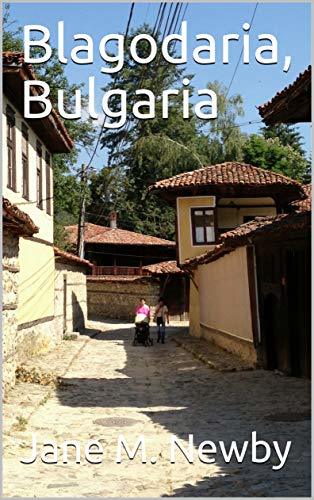
| Title | : | Blagodaria, Bulgaria |
| Author | : | |
| Rating | : | |
| ISBN | : | - |
| Language | : | English |
| Format Type | : | Kindle Edition |
| Number of Pages | : | 283 |
| Publication | : | First published January 1, 2019 |
Blagodaria, Bulgaria is the account of their intense, challenging, poignant two years living in a villa with other teachers in a wacky, unique school that shared its campus with a police training academy and never knew when it was going to be ordered to close down, and in a wacky, closed country struggling with the residue of Communism—corruption, poverty, work ethic, unplowed streets, among a people known for pessimism but who had a turbulent history and an uncertain future. Their remarkable, endearing students, some of the brightest in the country and learning to learn by critical thinking rather than rote memorization, have dreams of a different life, many of them going on to prestigious American universities.
Despite the all-encompassing demands of the school, the author manages to explore the cultural and historical delights in the old city and travel around the beautiful, diverse countryside of dry plains, rugged mountain ranges, Black Sea coast, villages and vineyards. One summer is spent backpacking through more countries of Eastern Europe, with their accompanying transitions, and during school breaks there are trips to the Mideast and South Africa. Fifteen years after leaving it, the author returned to Bulgaria, which was still in ferment but opening up to the rest of the world and much changed.
Blagodaria, Bulgaria Reviews
-

I haven't made it to Bulgaria yet, but I'll get there one of these days—I've been curious since I walked the Camino and met, briefly, a Bulgarian woman who had left her life there to take up with a Spanish hospitalero. I know already that it will not be what I imagine: I imagine Sofia as old-city Europe, crumbling but grand prewar buildings, but I'm also perfectly well aware that it's more...Soviet block architecture. I know that, I do, and yet...
Anyway. Newby and her husband spent a couple of years in Bulgaria in the late 90s, teaching at an American/international school there. Most of the students were Bulgarian, but they came from all over; many of the students continued on to university and work in the United States or elsewhere abroad. Officially, the school encouraged students to return to Bulgaria, to help the country craft a more prosperous future—but unofficially, the Bulgarian teachers told them to leave and not come back, because life would be easier, would be richer, elsewhere. Of Eli's ACS class of ninety, only fifteen are still in Sofia. Of Ivan's class of thirty, only ten are still in the country (275).
They packed a lot of life into those two years—she mentions that the pay was low enough that you could either save money or travel while you worked there, and Newby and her husband opted for travel. I found myself wishing, though, that she'd focused the writing on the time spent in Bulgaria; it was Bulgaria I was curious about, after all, not vacations to Israel and Egypt and Romania and South Africa. At some point my eyes just sort of...glazed over. I'd also have liked a more nuanced discussion of Gypsies/Roma: Newby struggles to maintain her neutrality, first objecting to negative stereotypes but also more or less taking them as fact; it's only late in the book (270) that she mentions the very real discrimination that they face—not to mention have faced for hundreds of years—and then it's only in passing. It's a relatively small but recurring part of the book, and...doesn't feel great.
Still, there's not loads out there on Bulgaria (though I do have my eye on some other books that I might yet make it to), so this made for an interesting perspective—from someone genuinely curious about the world around her—on a place and a culture at a crossroads.







